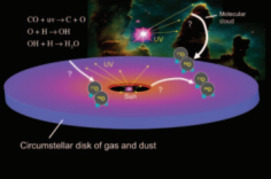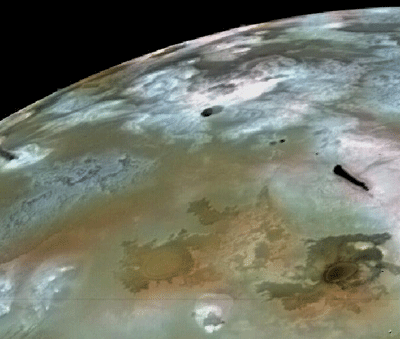Stable Isotope Cosmochemistry and the Evolution of Planetary Systems
Stable isotopes record the evolution of planetary systems, beginning with stars coalescing from molecular clouds, followed by the nucleosynthesis of elements in stars, and proceeding to the accretion and differentiation of planets. Current stable isotope measurements range in scale from isotopic mapping of the Milky Way Galaxy with spectrographs on telescopes to the analysis of stardust with ion probes
Stable Isotope Cosmochemistry and the Evolution of Planetary Systems Read More »



